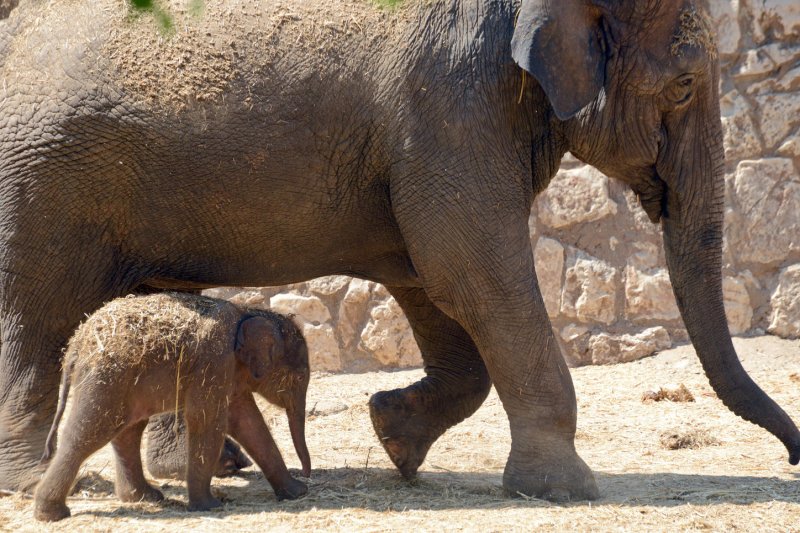A new study by the University of Utah has found the genetic mechanism that determines why elephants rarely get cancer. The research might lead to a breakthrough in human cancer treatment. Photo by Debbie Hill/UPI |
License Photo
SALT LAKE CITY, Oct. 12 (UPI) -- Elephants have genes that seem to make them far more resistant to cancer than humans and other mammals, a new study said.
Researchers led by the University of Utah found elephants have 40 copies of a gene that encodes a known tumor suppressor called p53. Humans have two. The study was published Oct. 8 in the Journal of the American Medical Association.
The researchers found elephants have an effective ability for killing damaged cells at risk for becoming cancerous, an ability twice that of human cells.
"Nature has already figured out how to prevent cancer," said co-senior author Dr. Joshua Schiffman, pediatric oncologist at Huntsman Cancer Institute, University of Utah School of Medicine, and Primary Children's Hospital. "It's up to us to learn how different animals tackle the problem so we can adapt those strategies to prevent cancer in people."
Because elephants live nearly as long as humans and are so large, they have about 100 times more cells as humans and consequently are 100 times as likely to develop cancer. However, they have a mortality rate from the disease of less than 5 percent. Humans cancer mortality is 11 to 25 percent.
During the multi-year study, when white blood cells drawn from the animals had their DNA damaged, which can commonly trigger cancer, the cells with p53 reacted the way they were predicted and destroyed themselves.
In fact, elephant cells self-destructed at twice the rate as human cells, more findings that support the role the high number of p53 played in stopping cancer.
"By all logical reasoning, elephants should be developing a tremendous amount of cancer, and should be extinct by now due to such a high risk for cancer," Schiffman said. "We think that making more p53 is nature's way of keeping this species alive."















